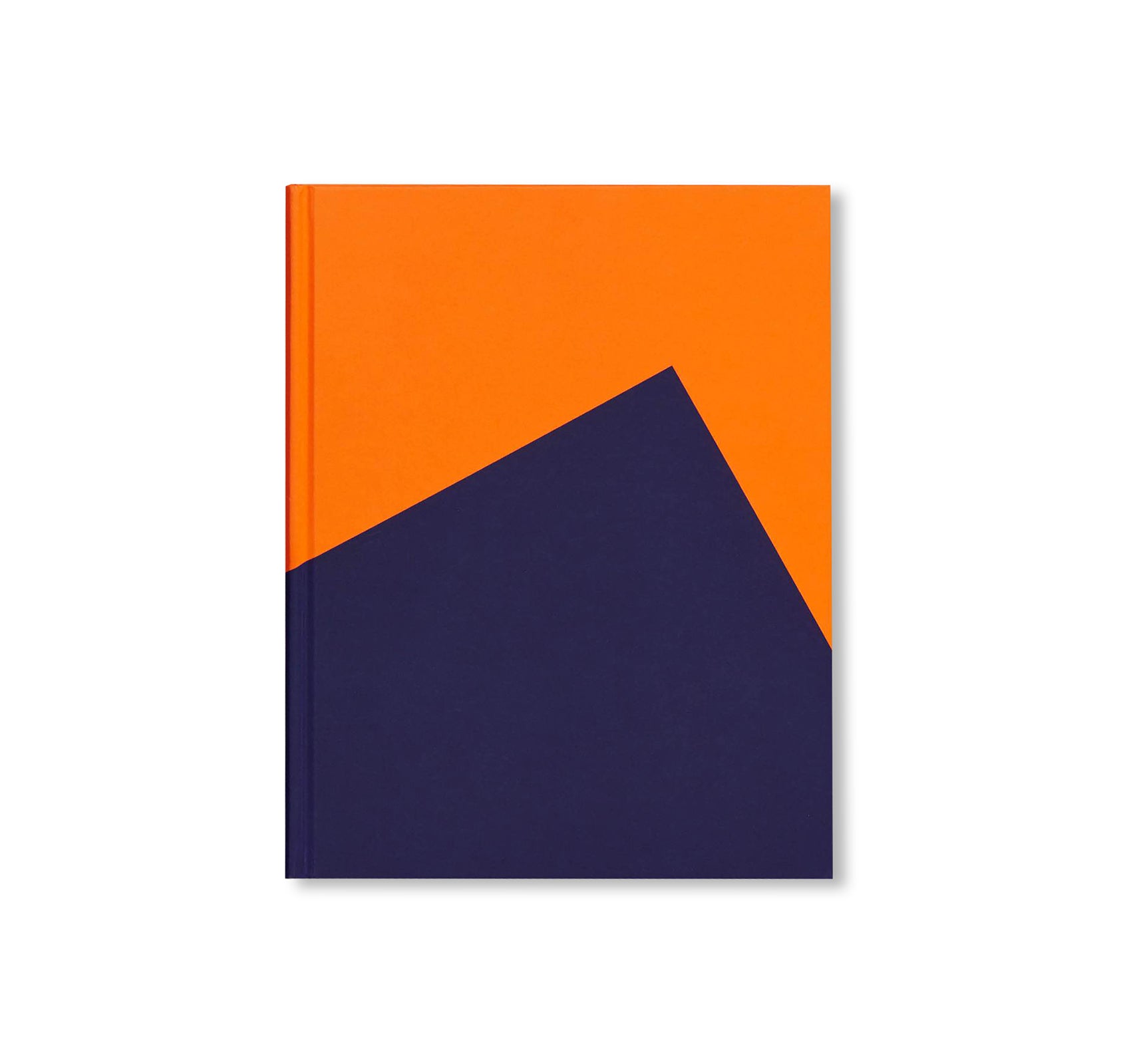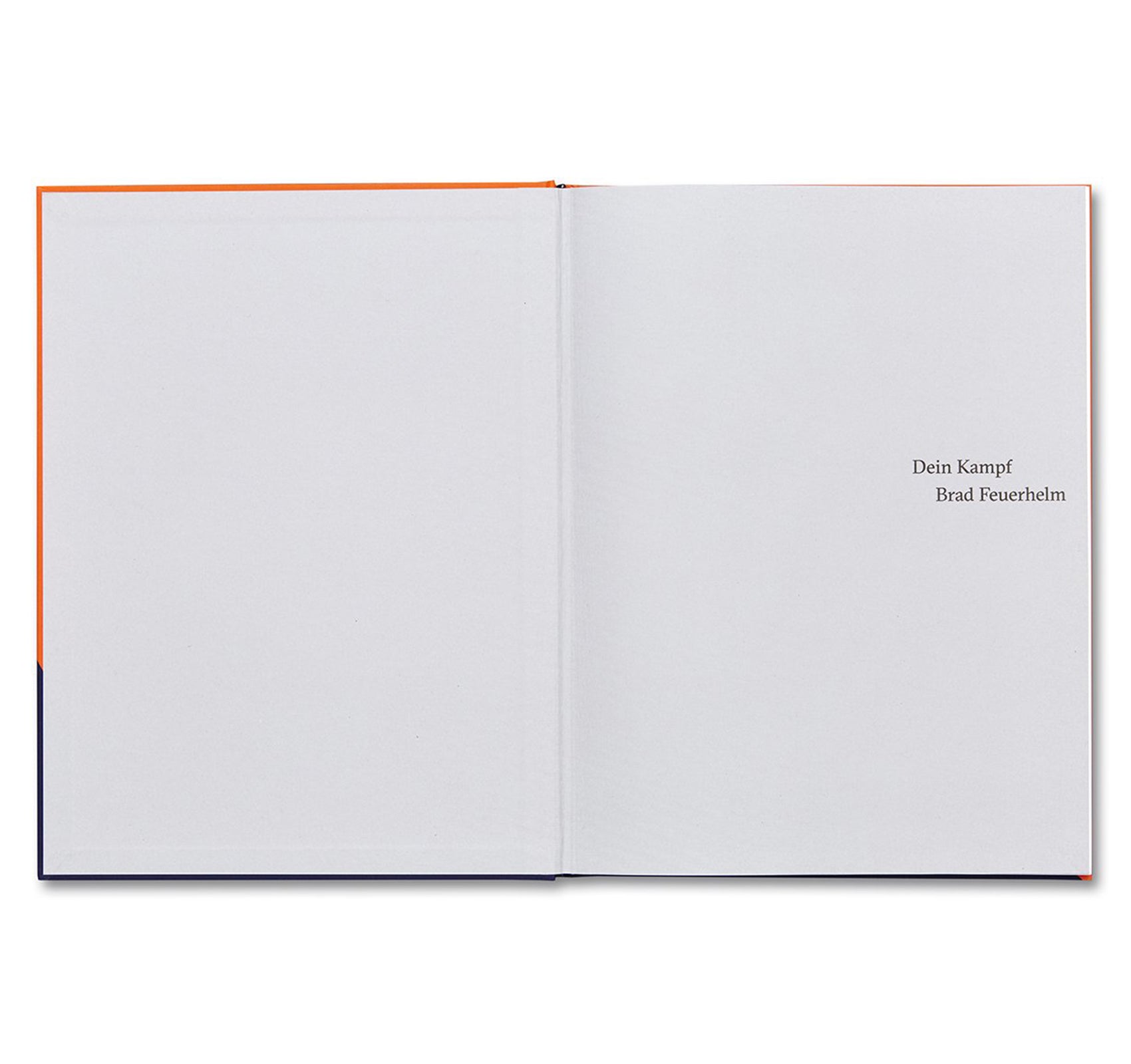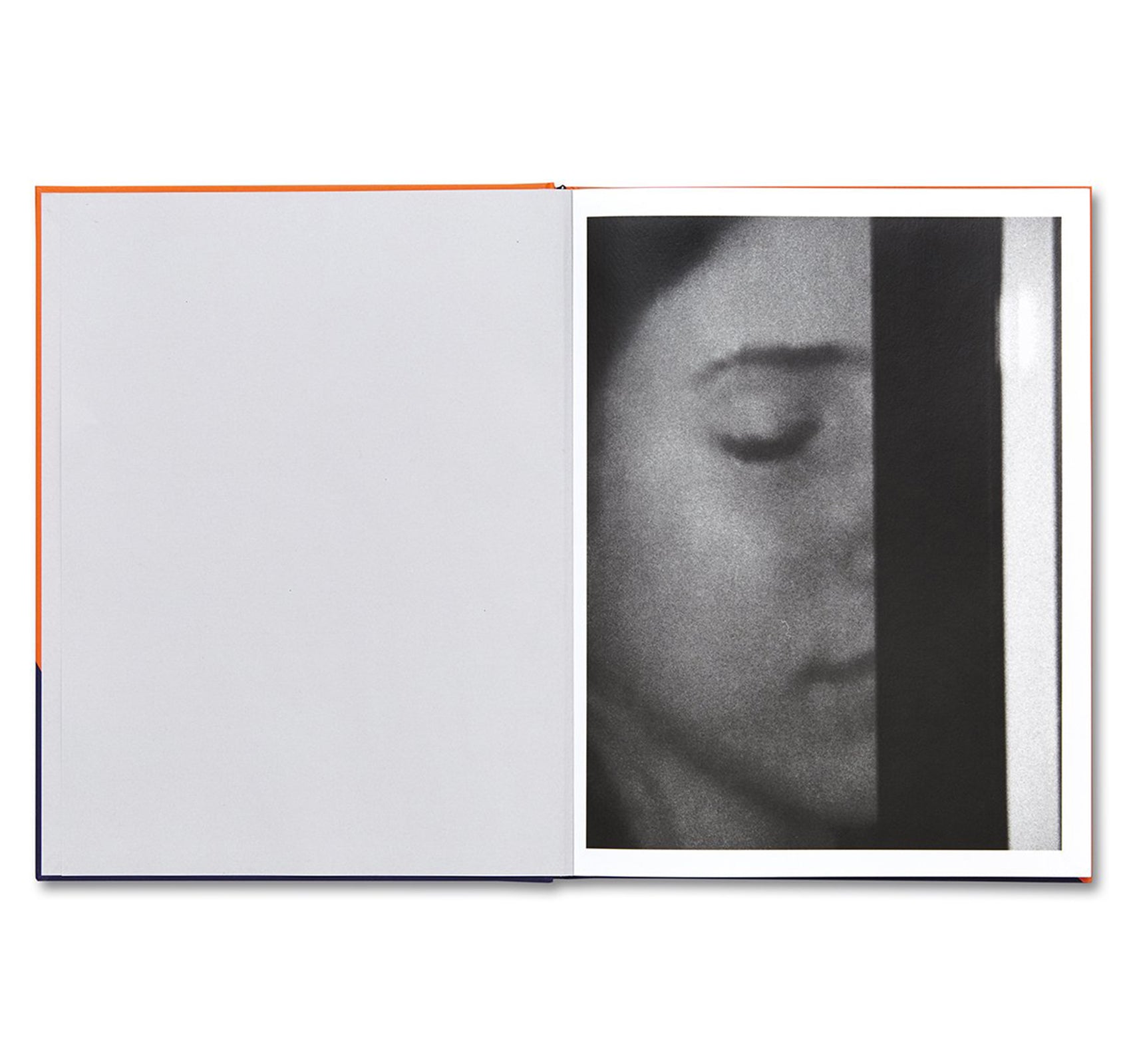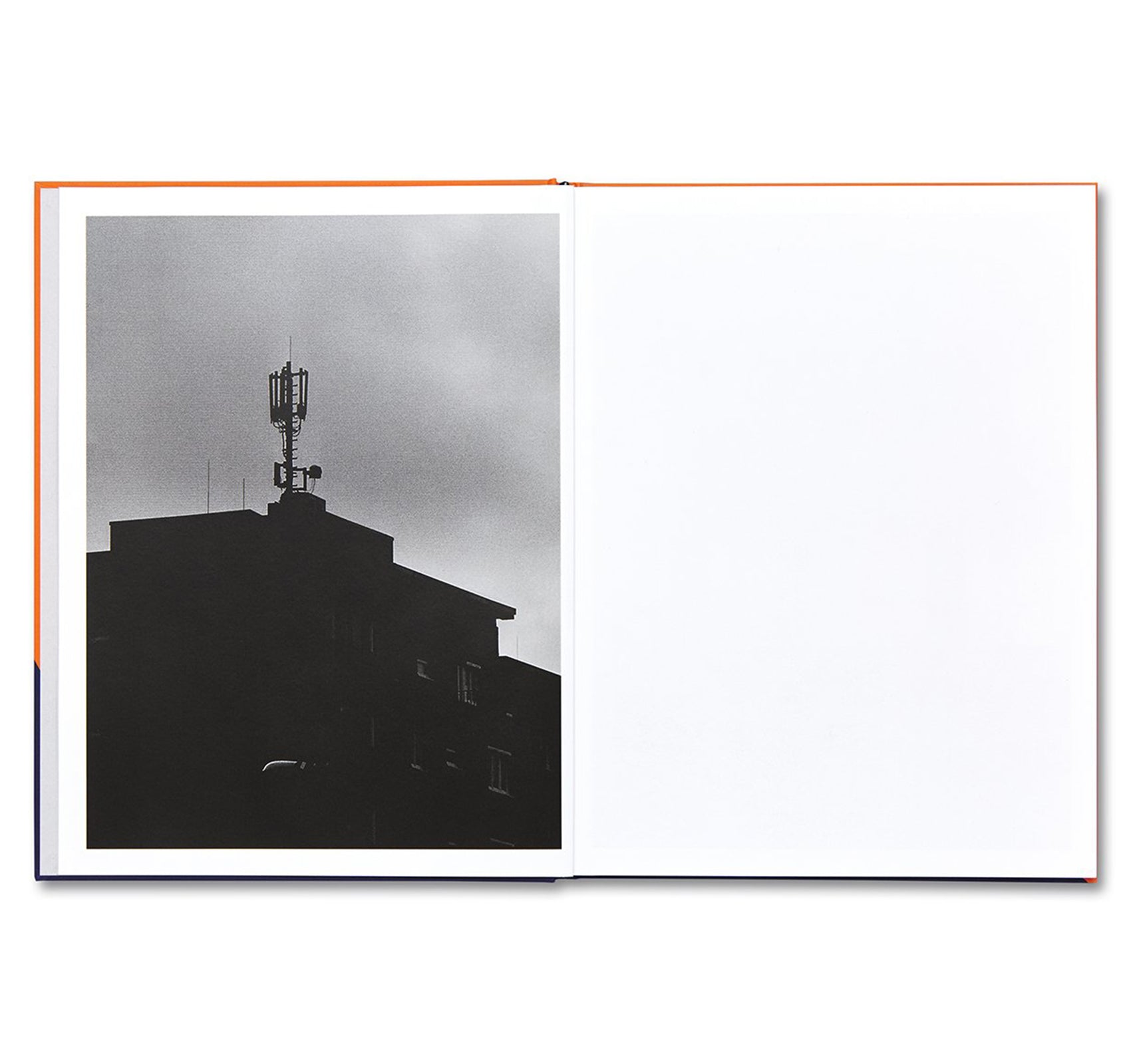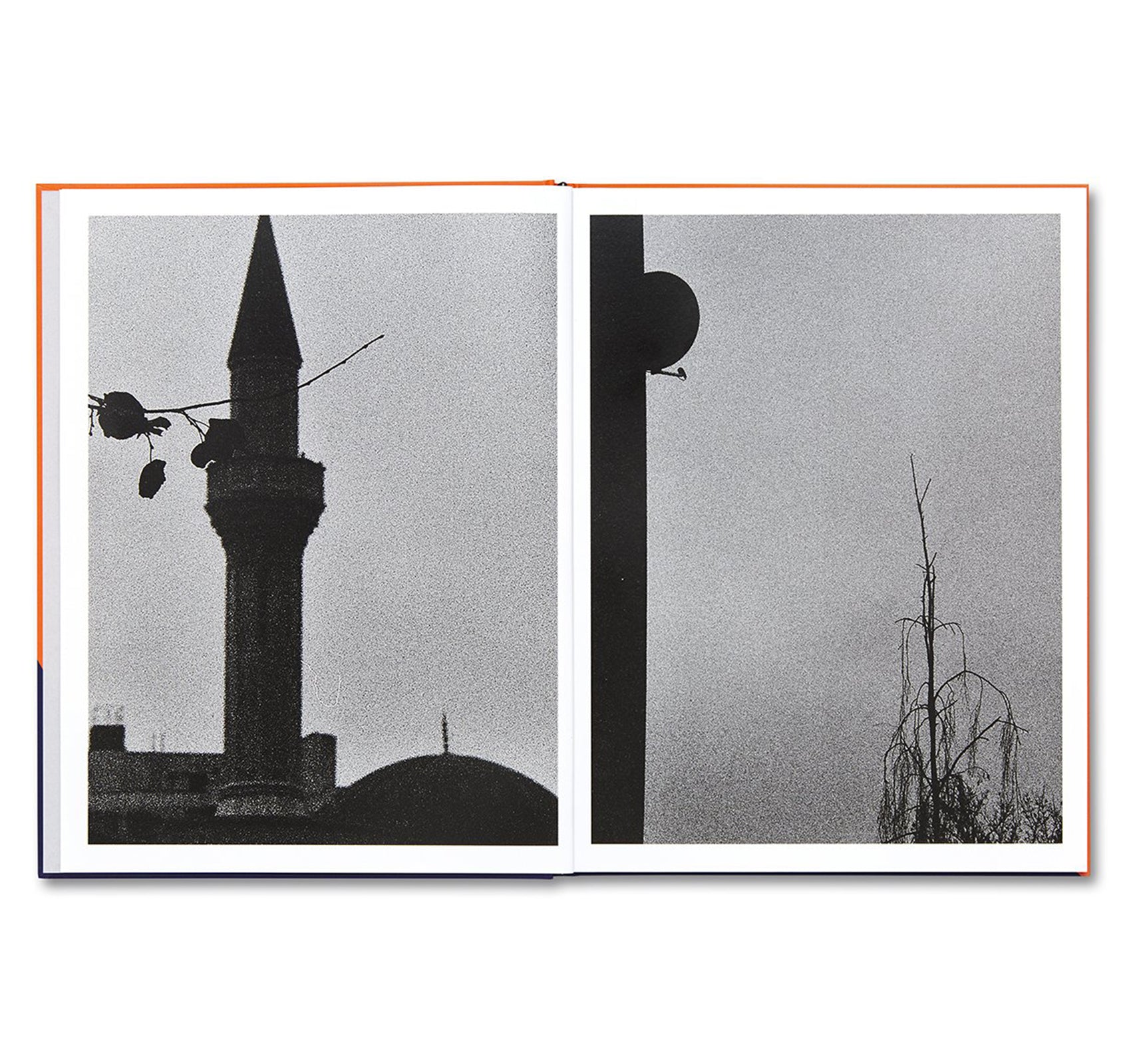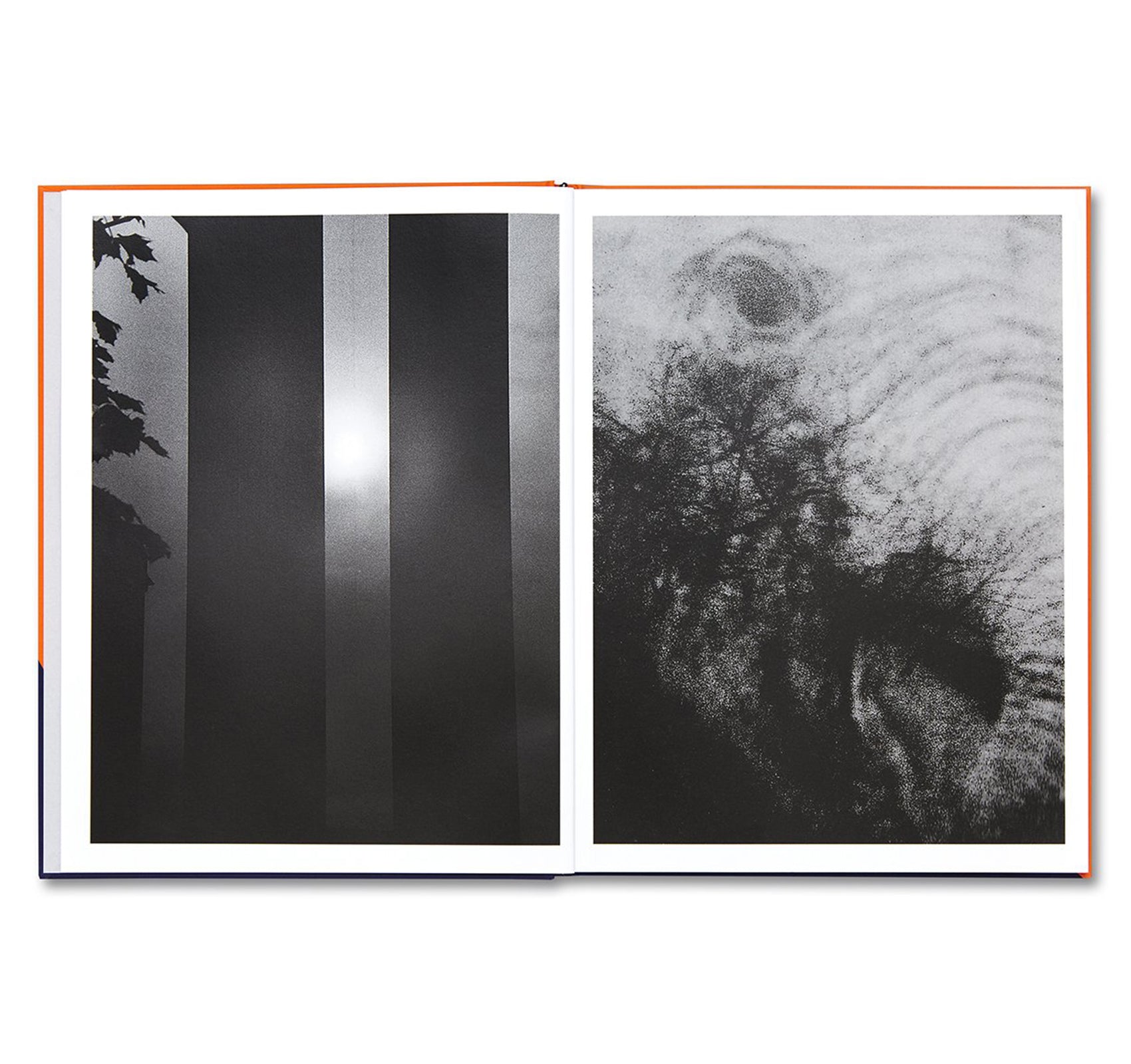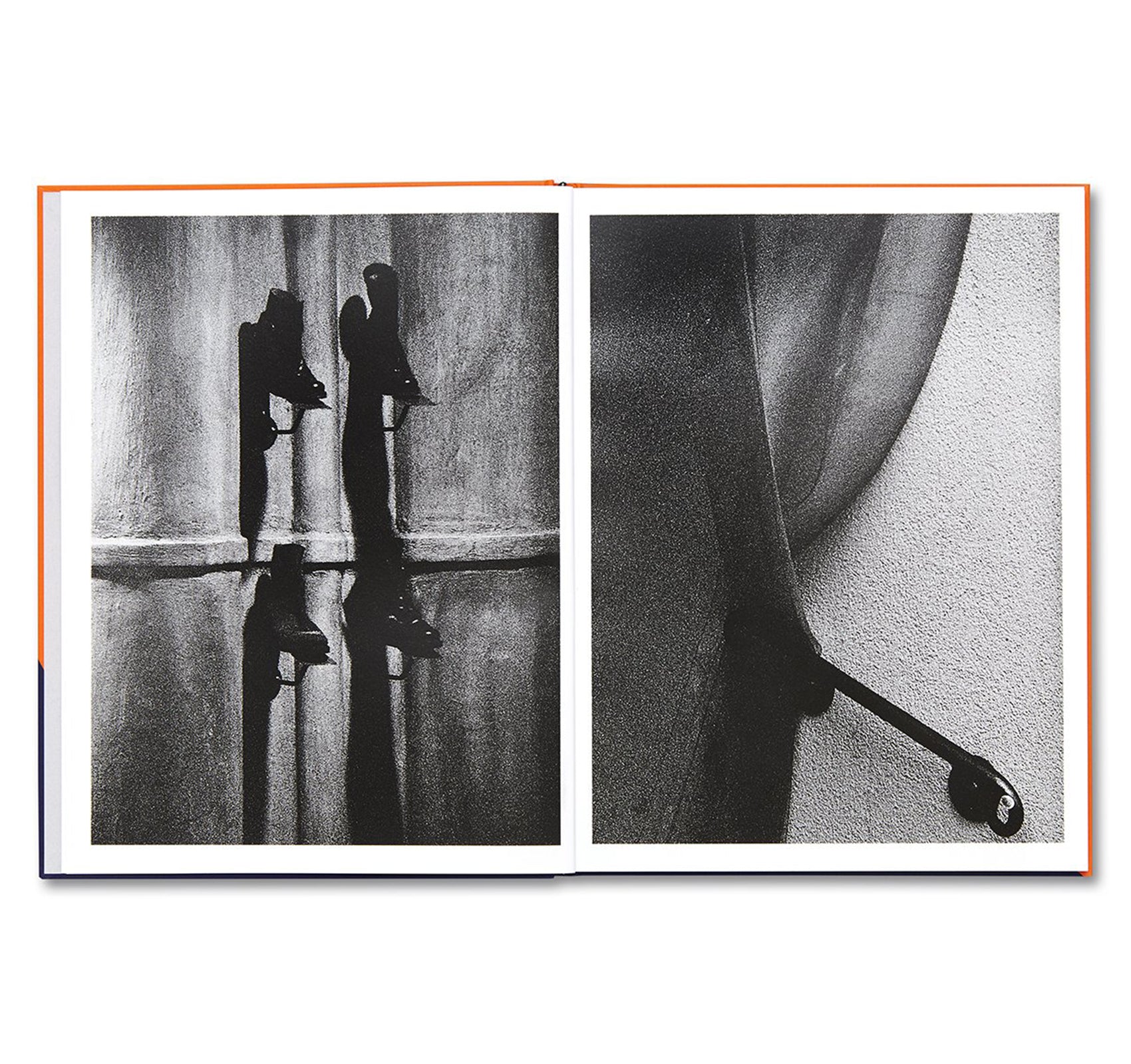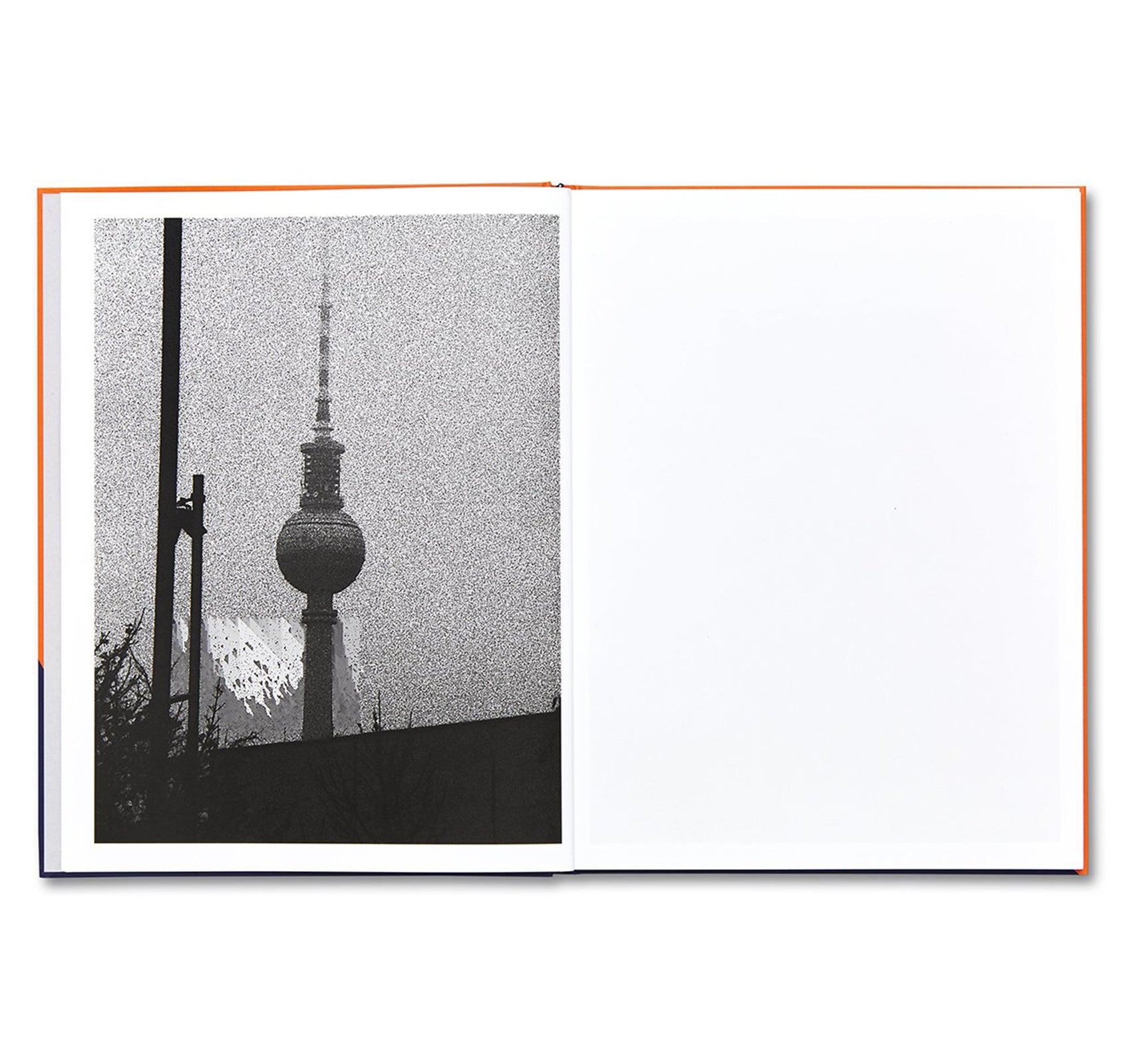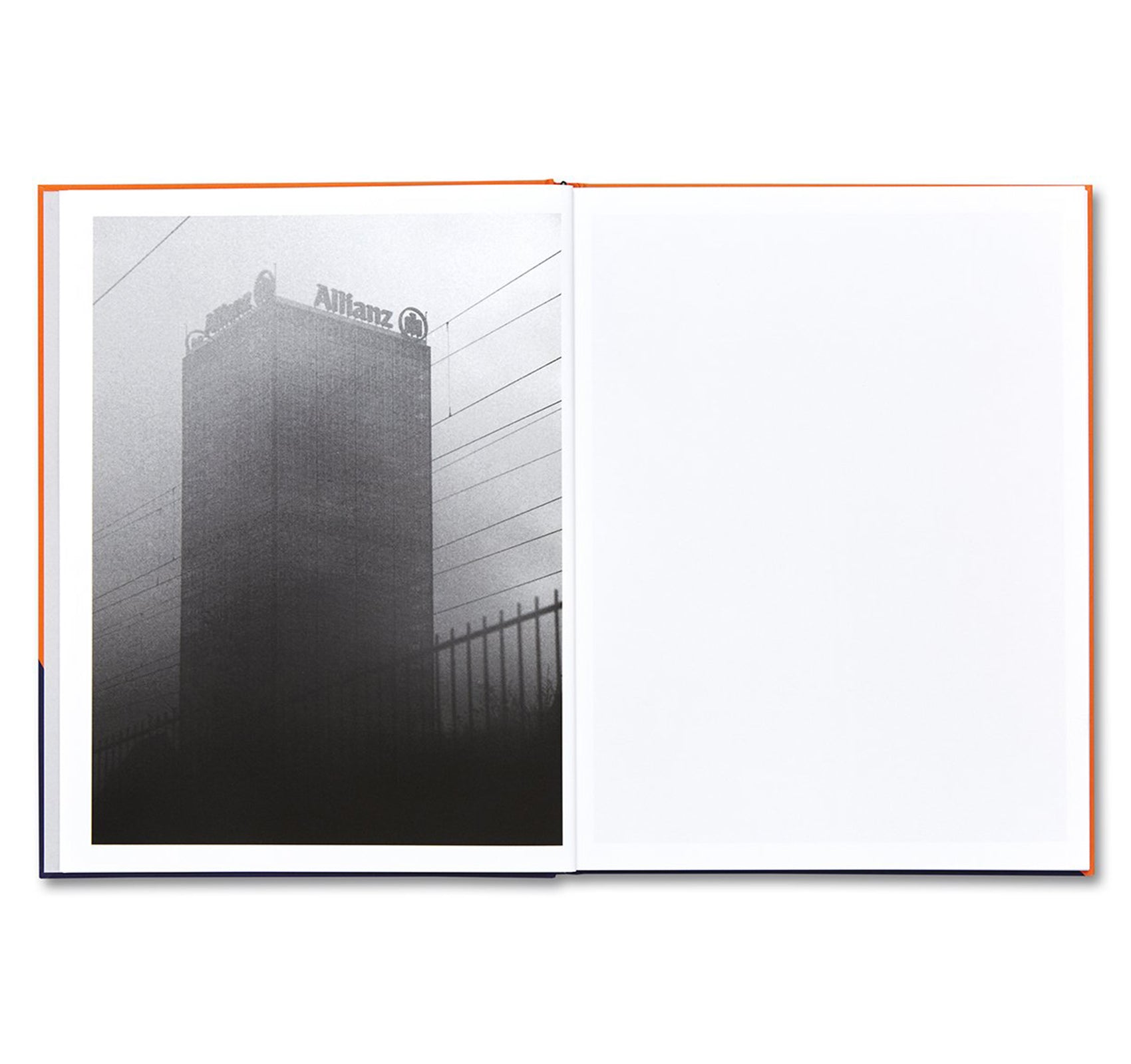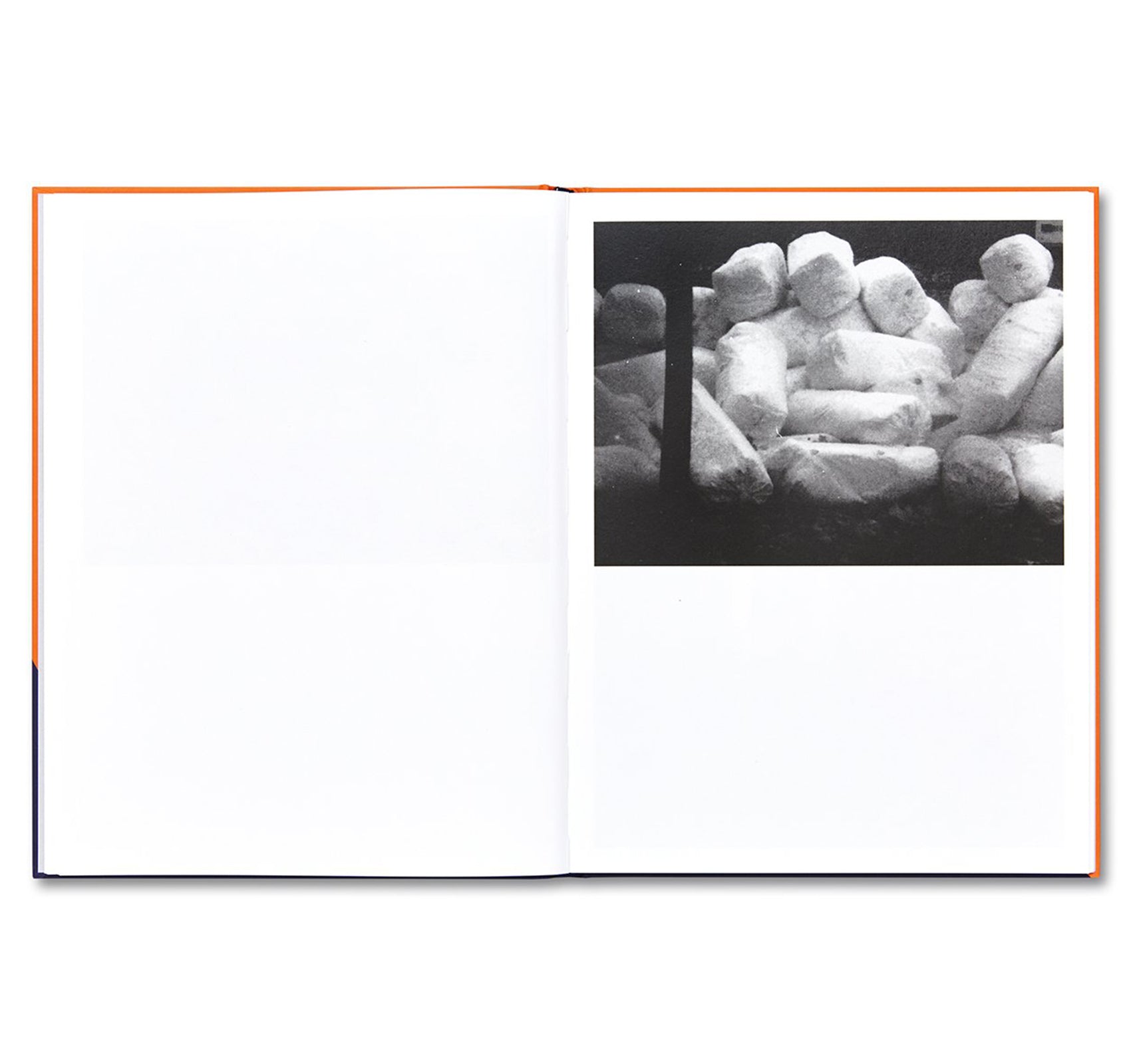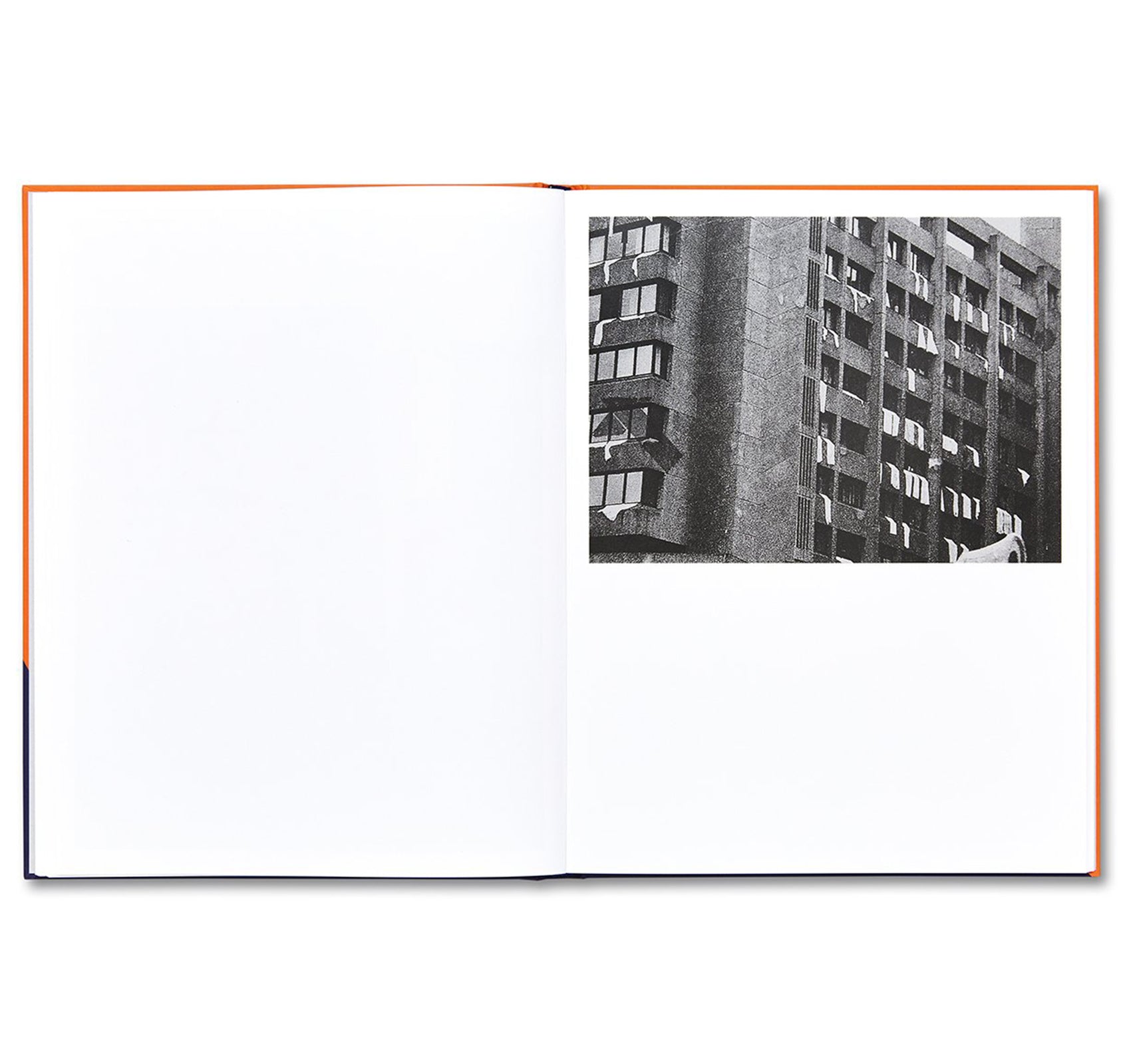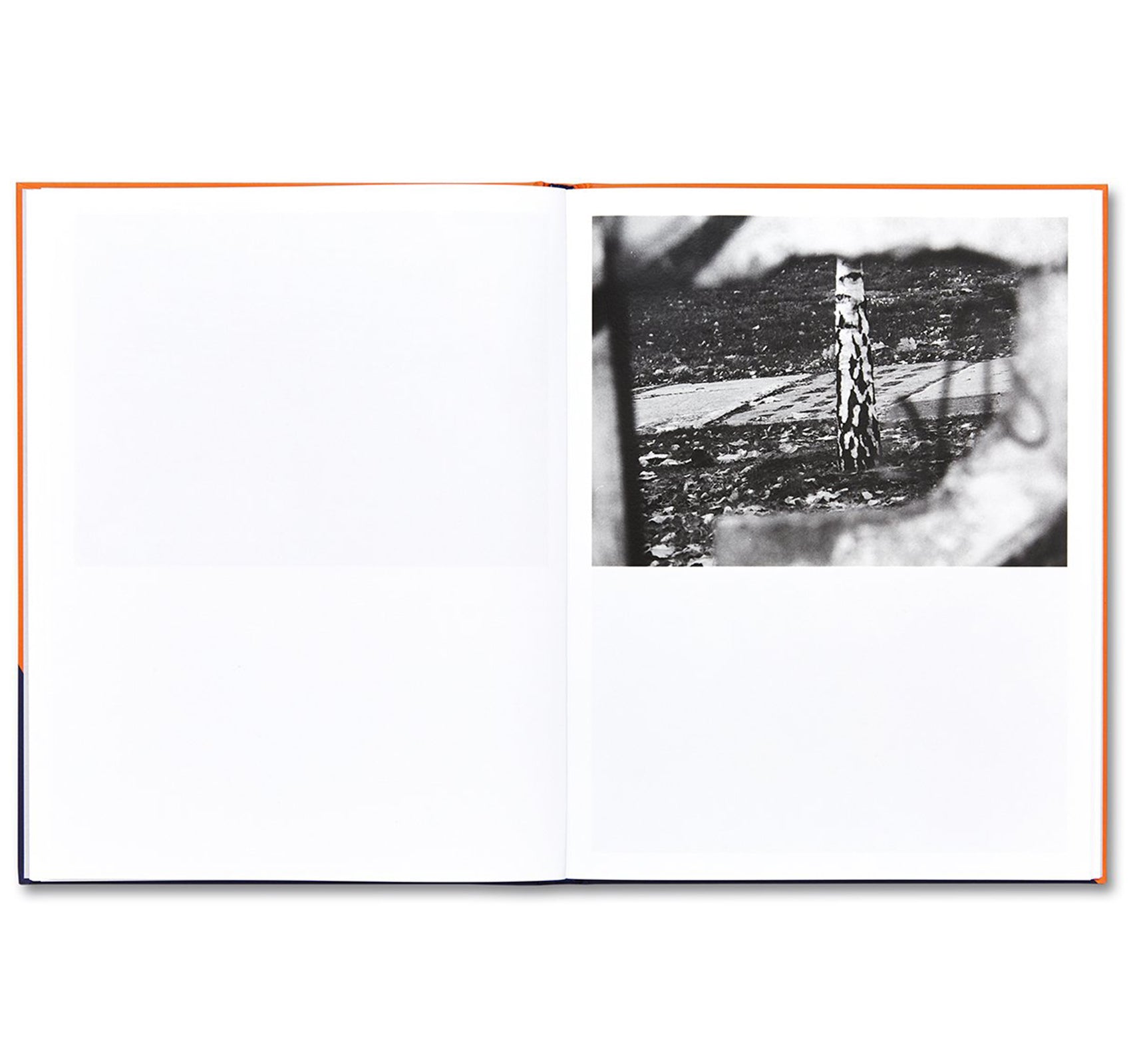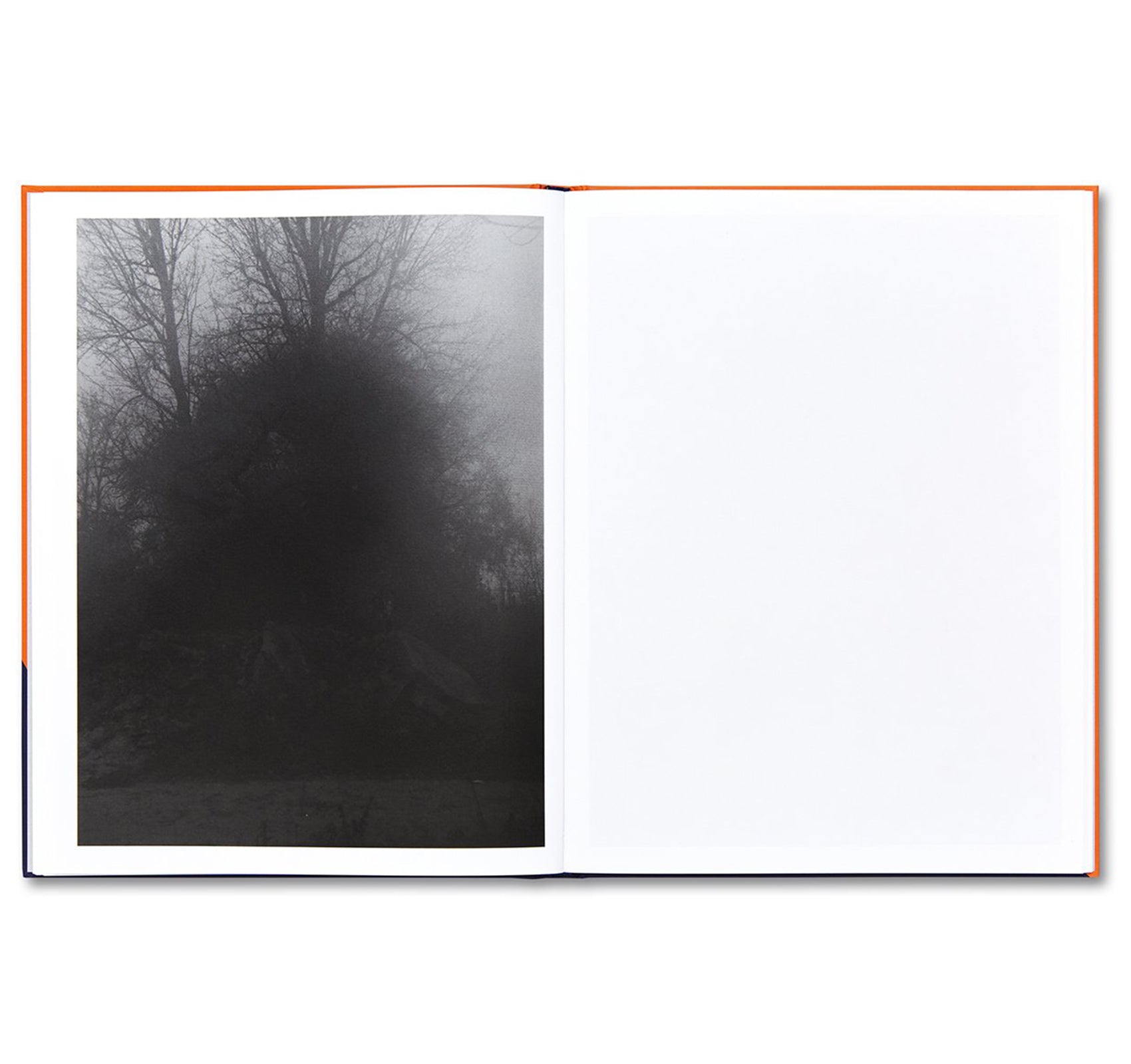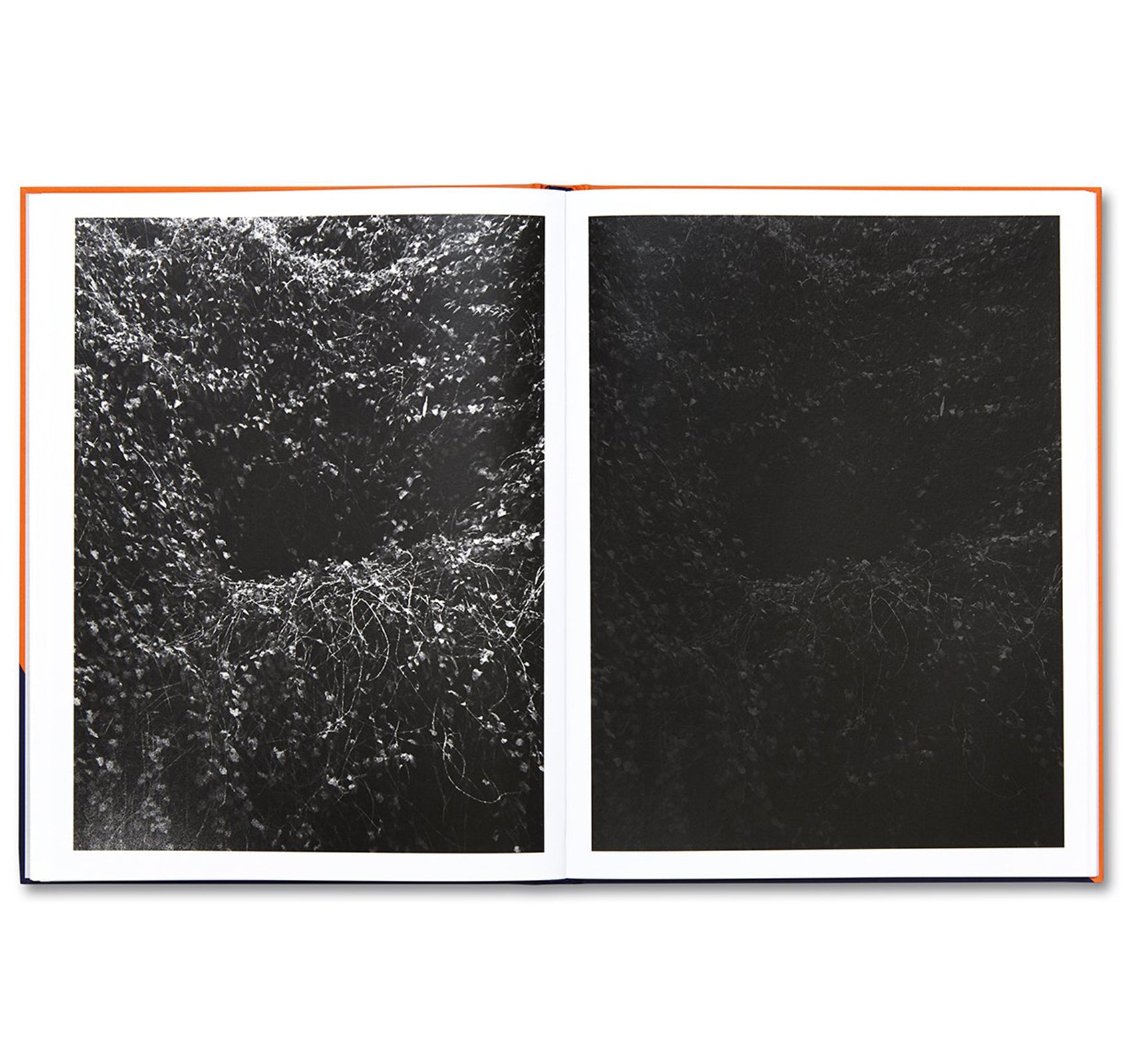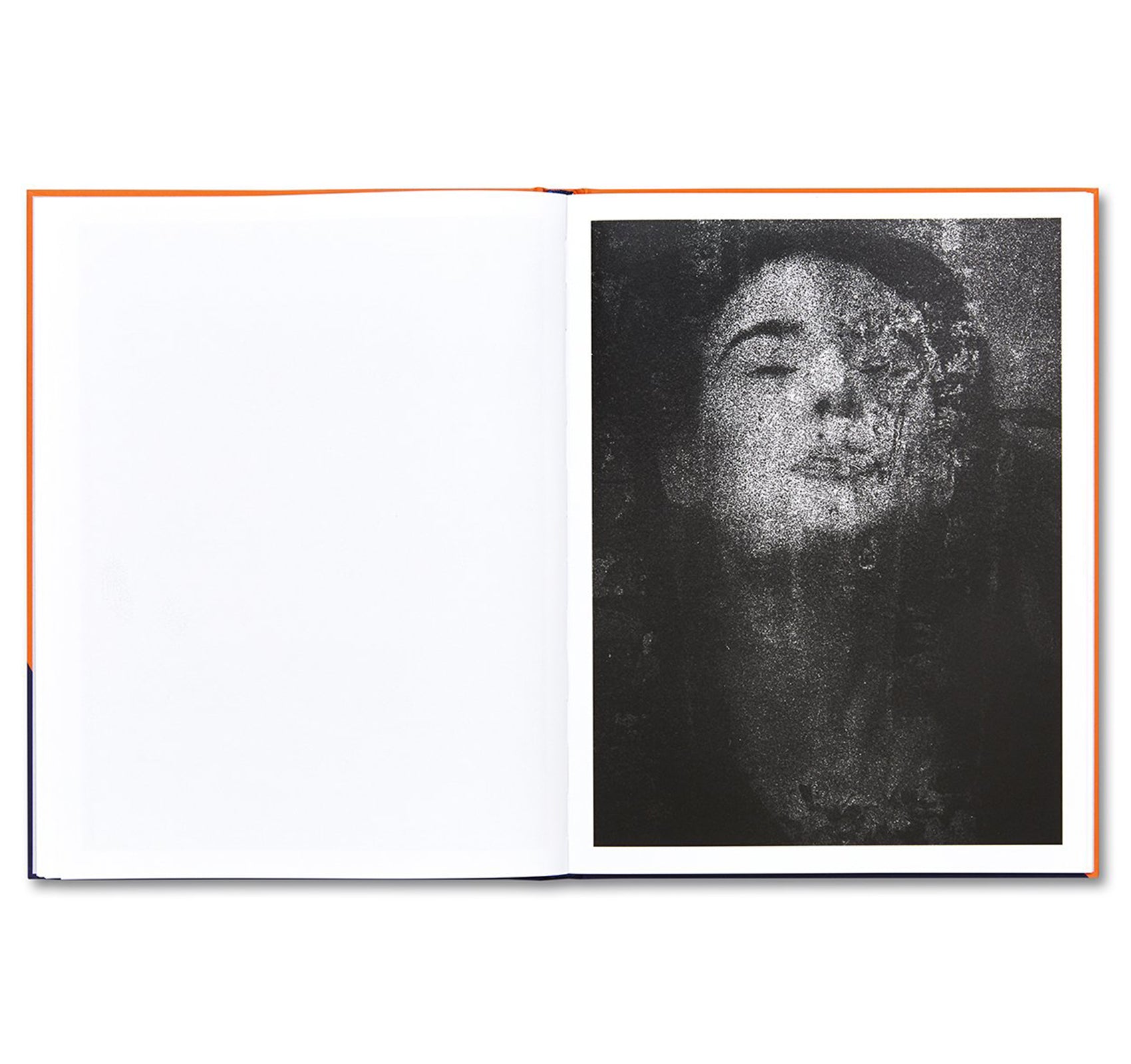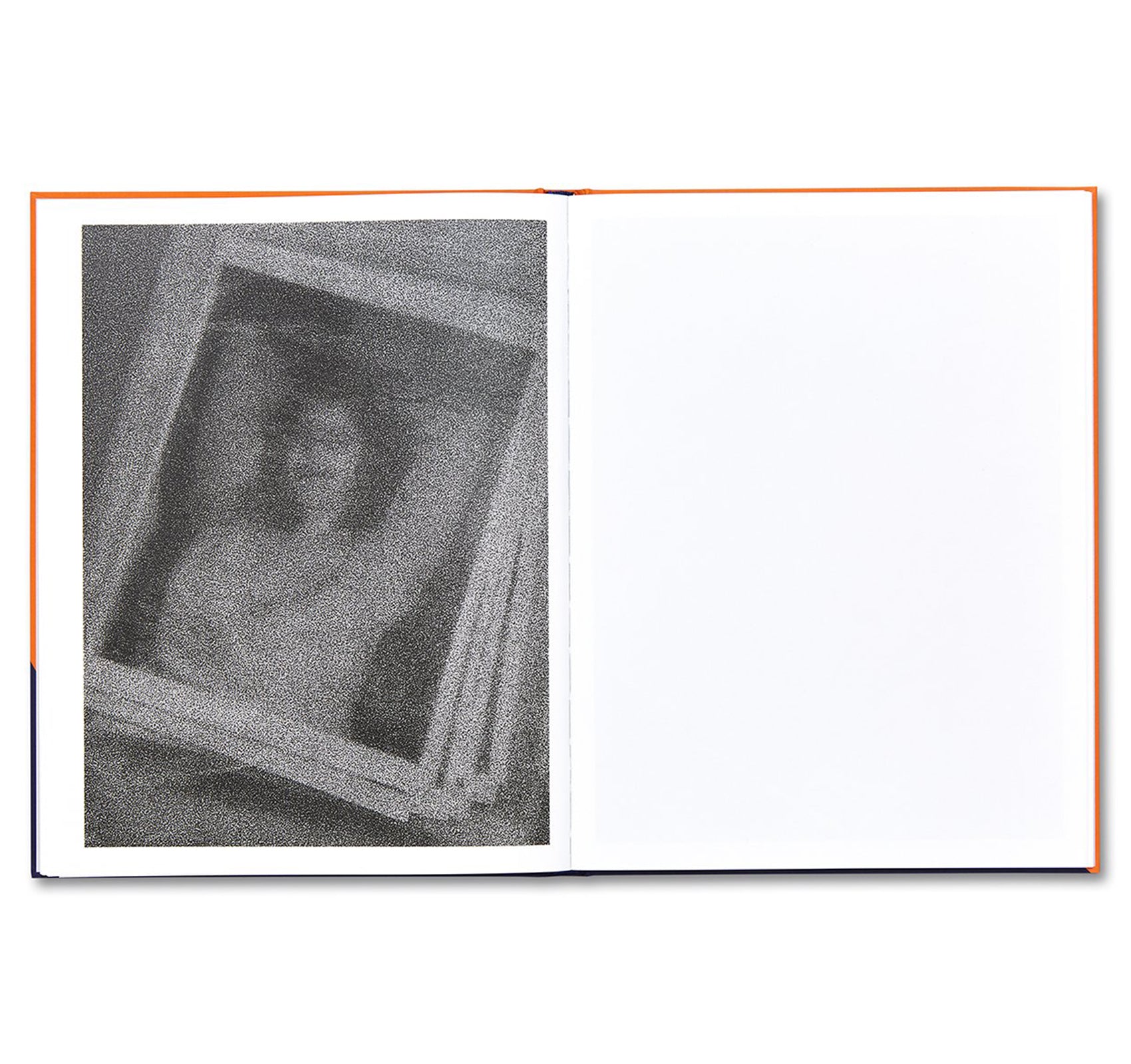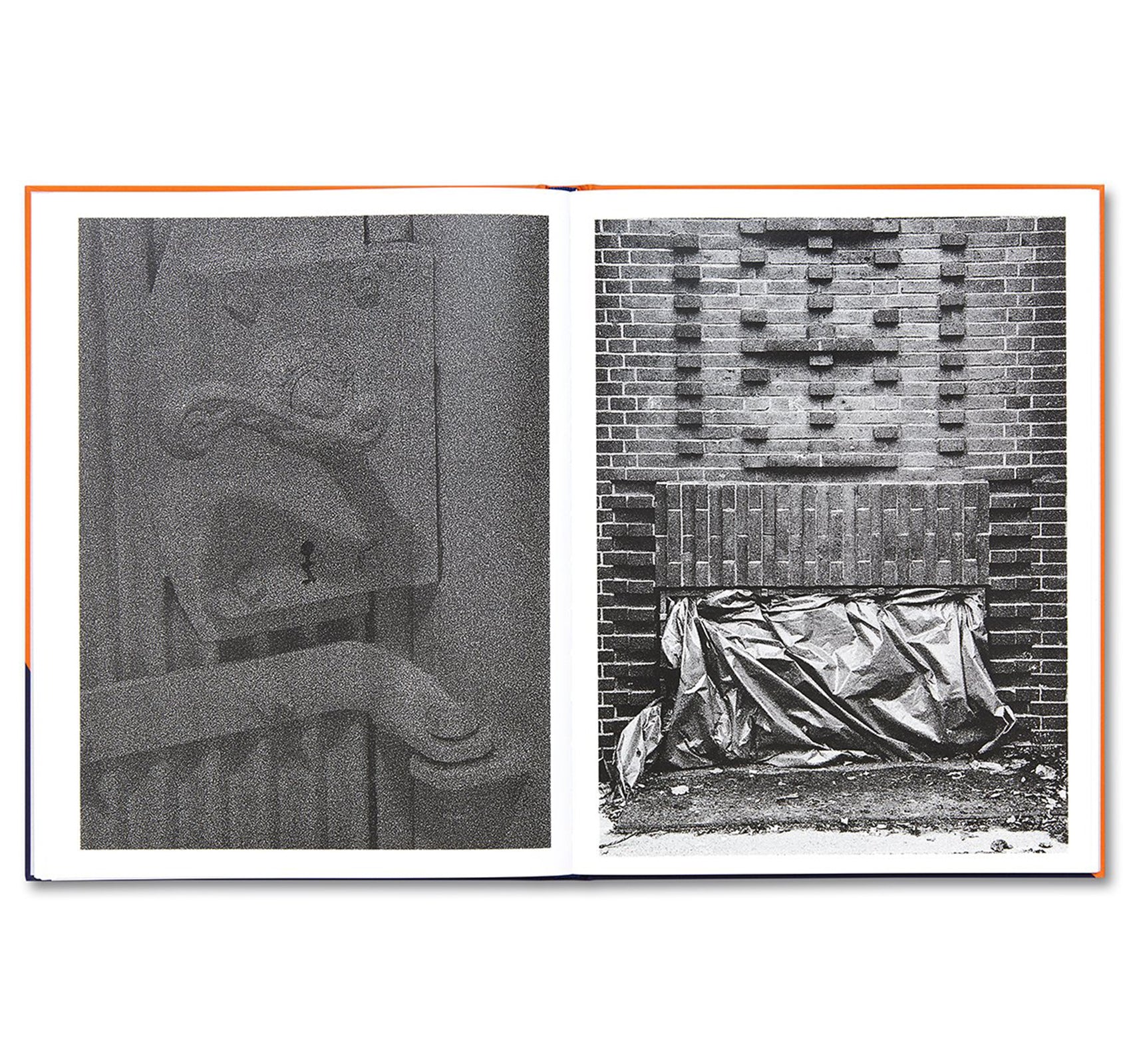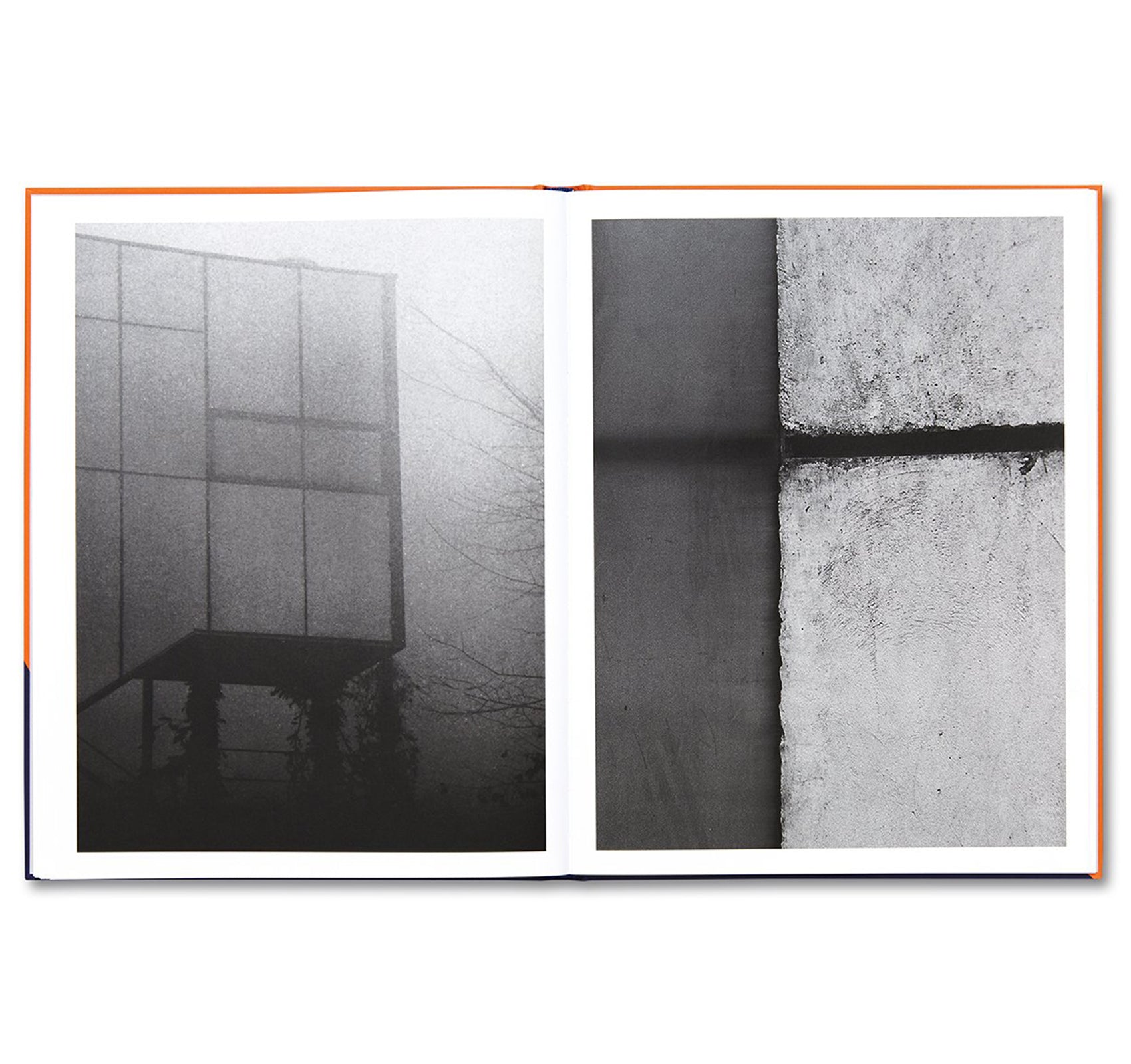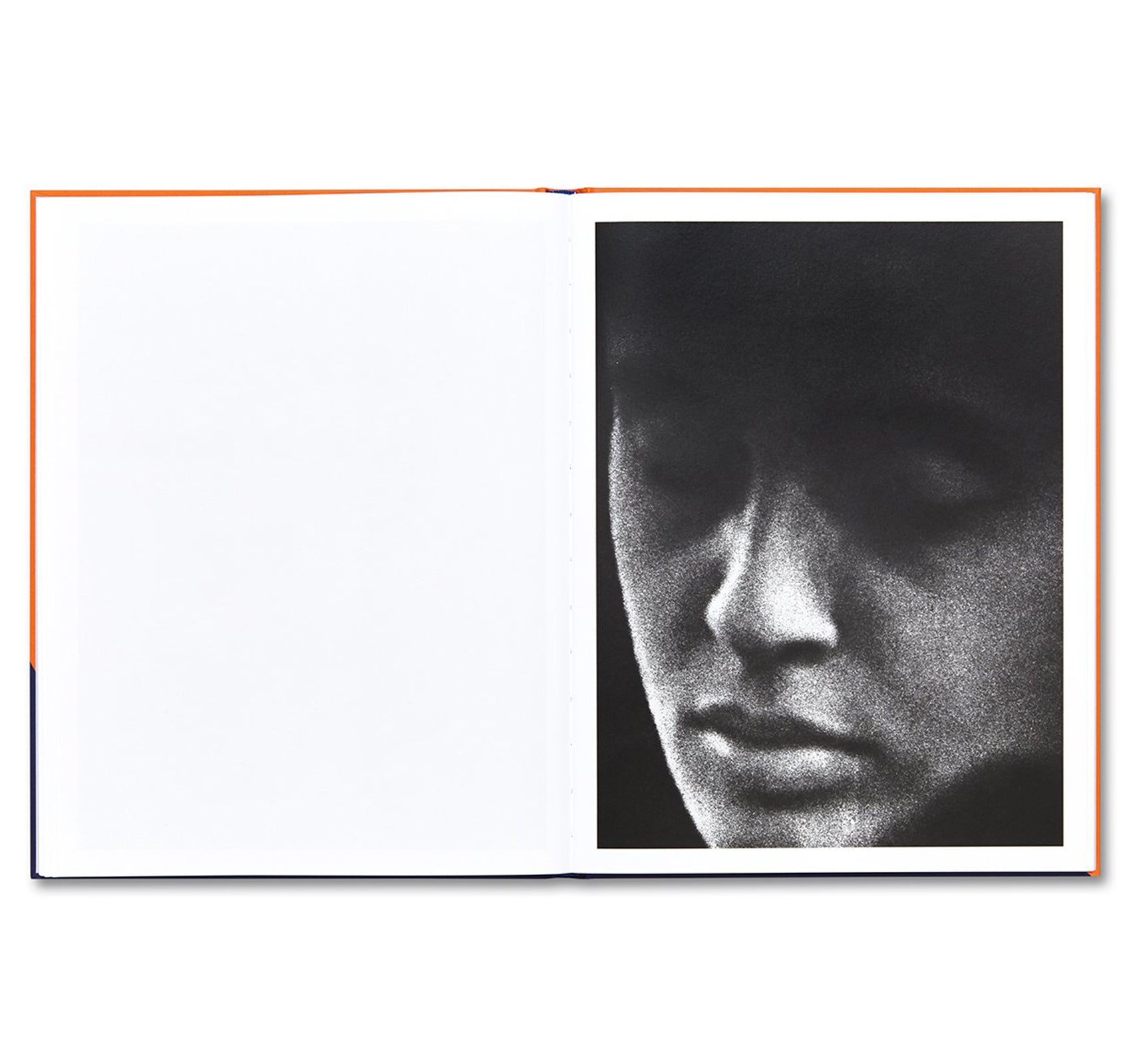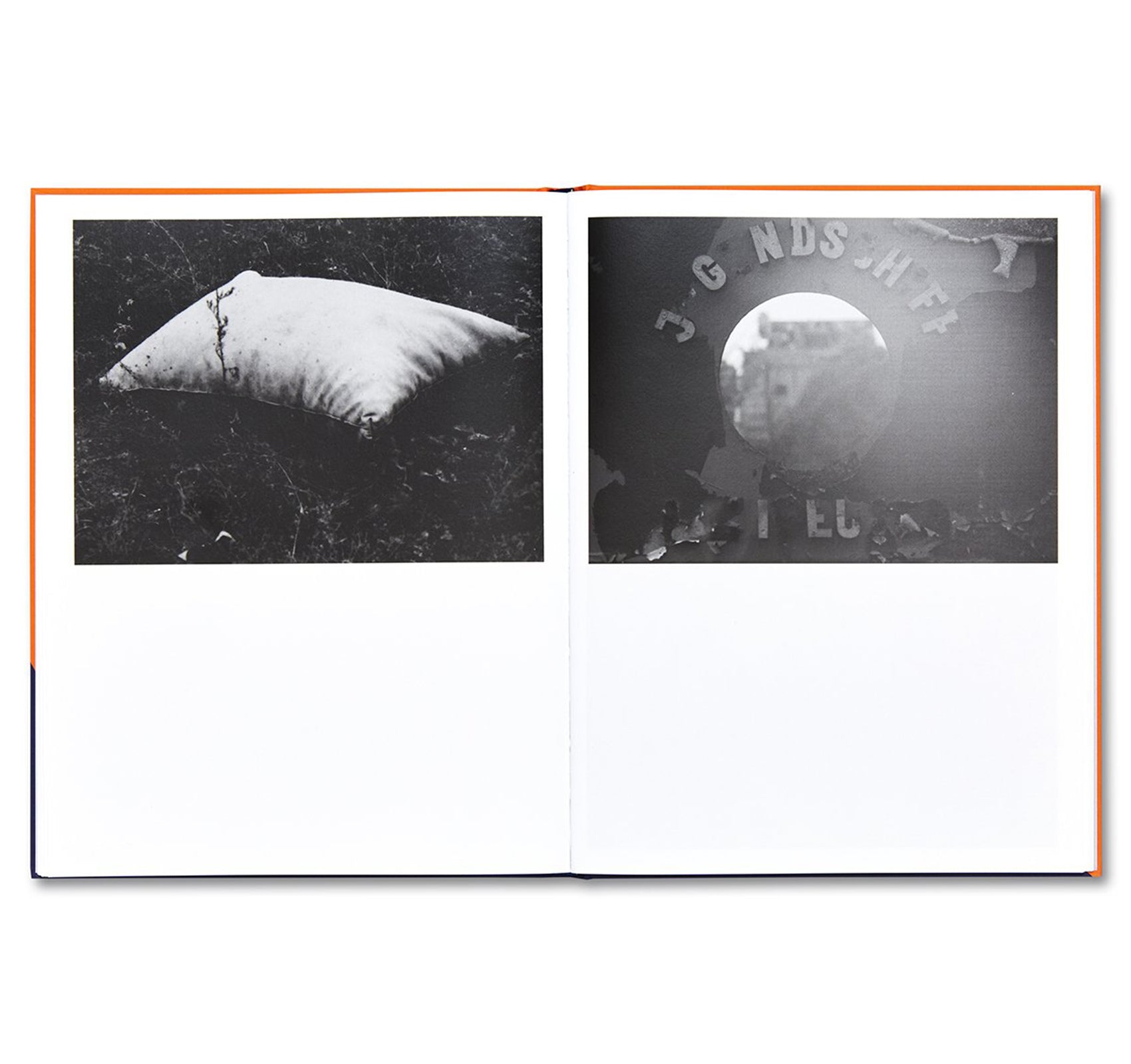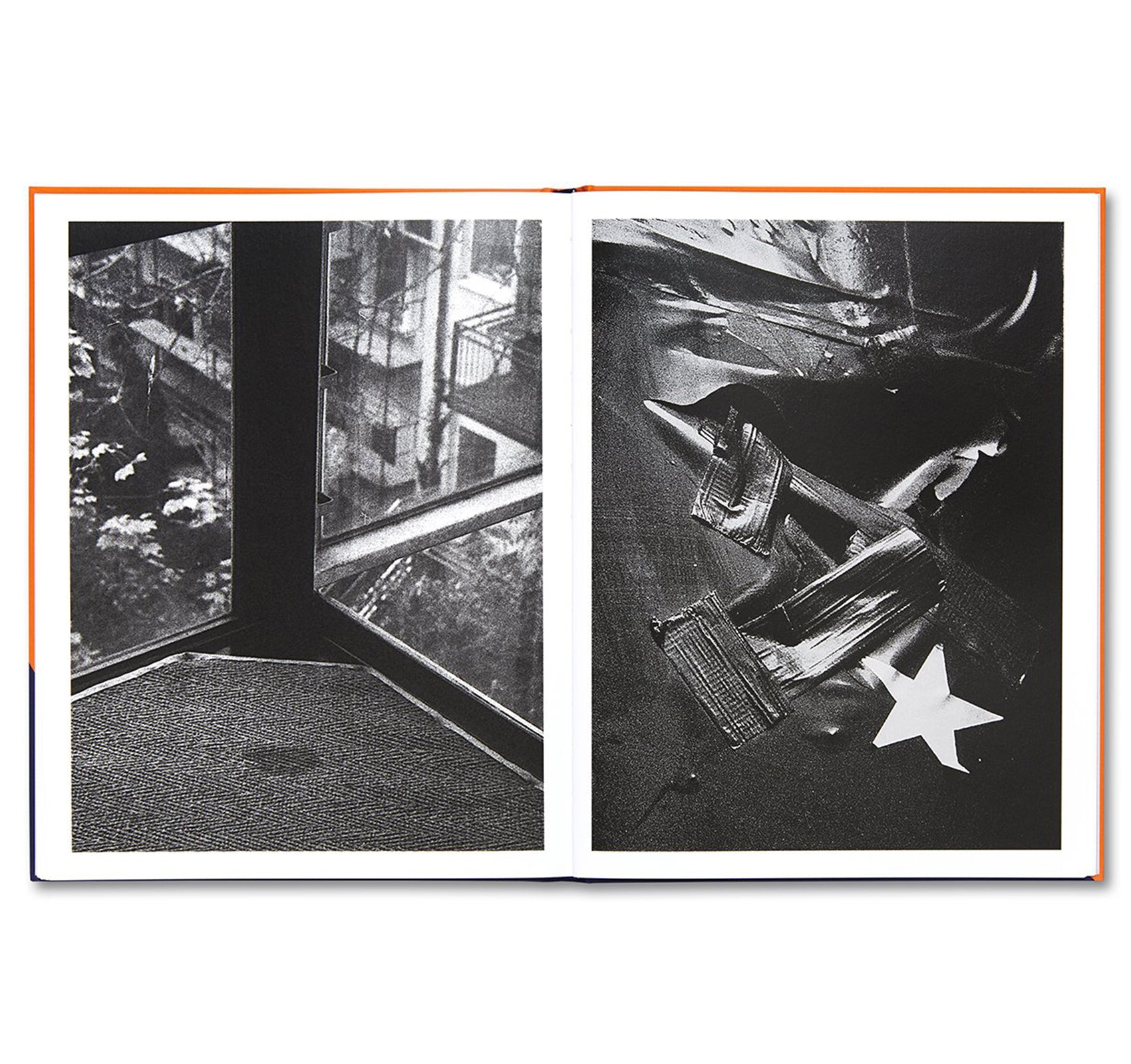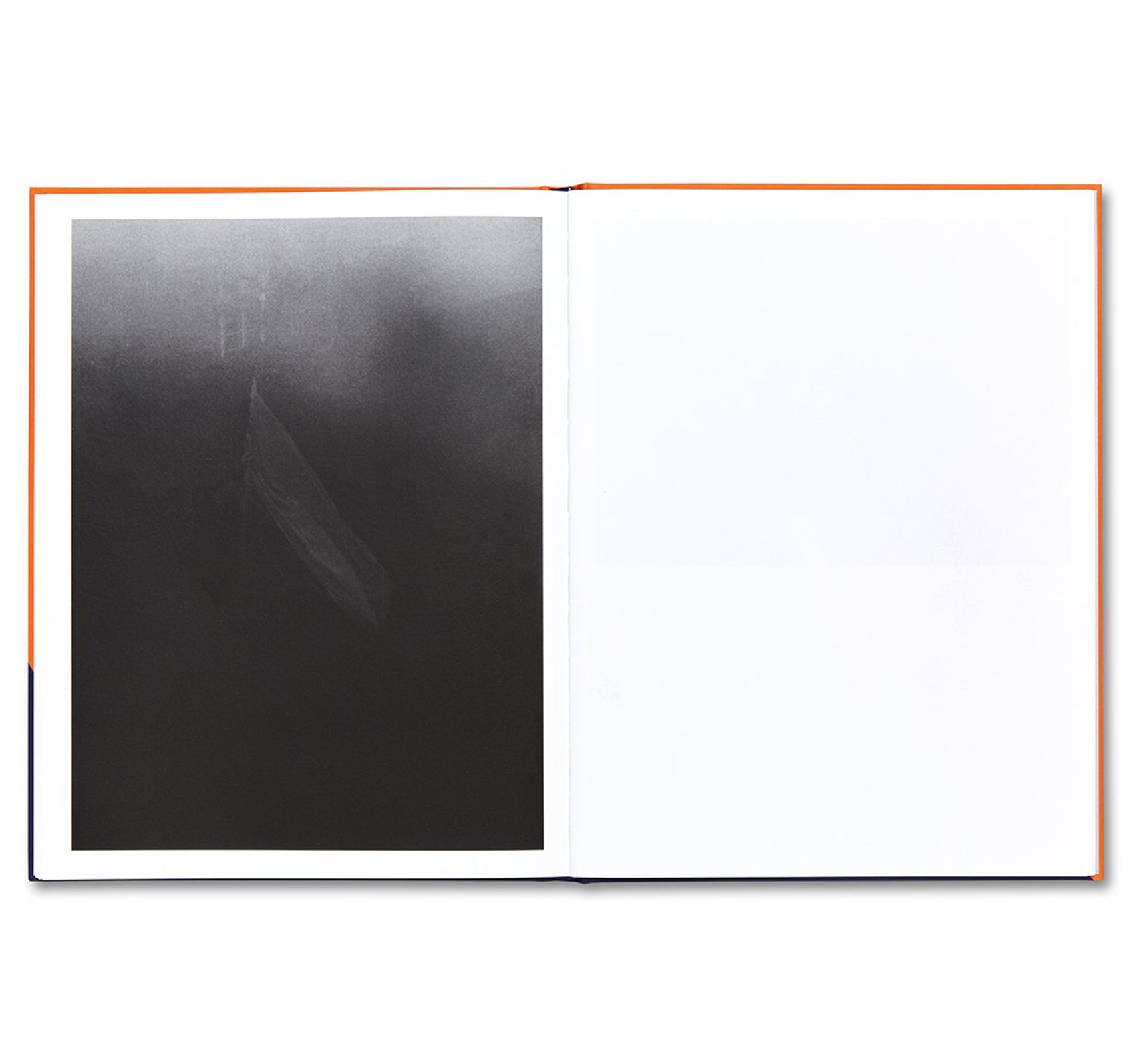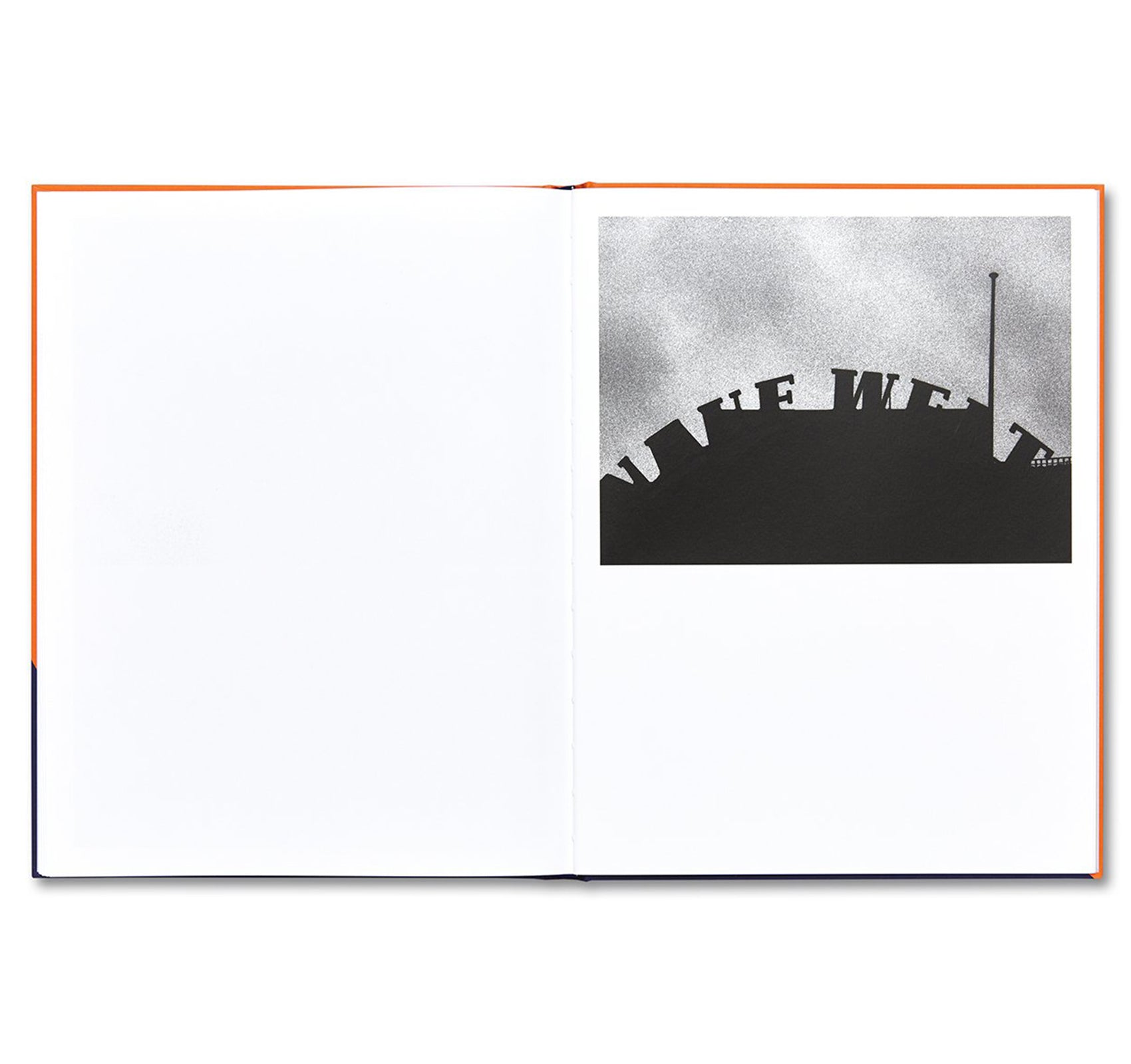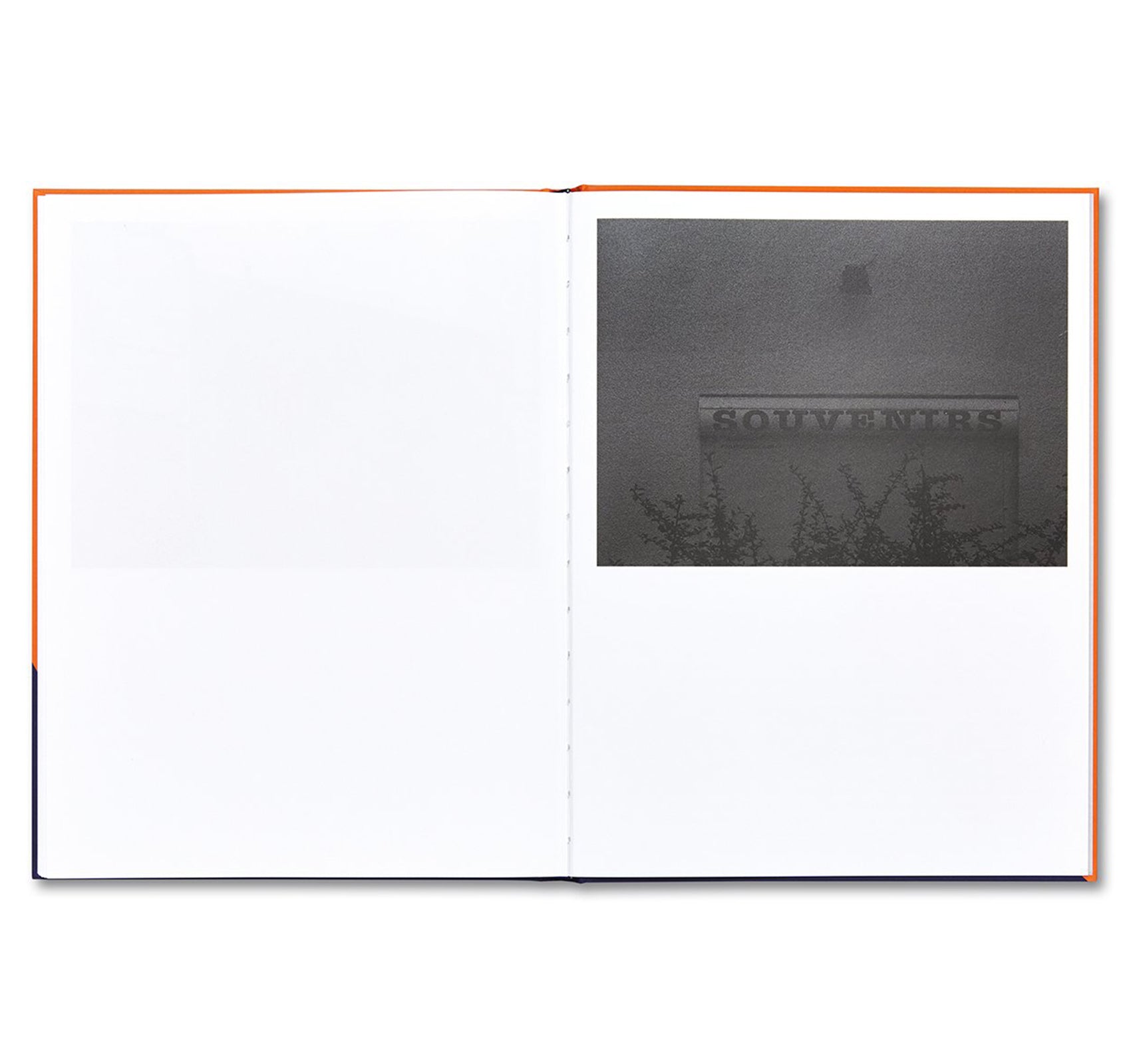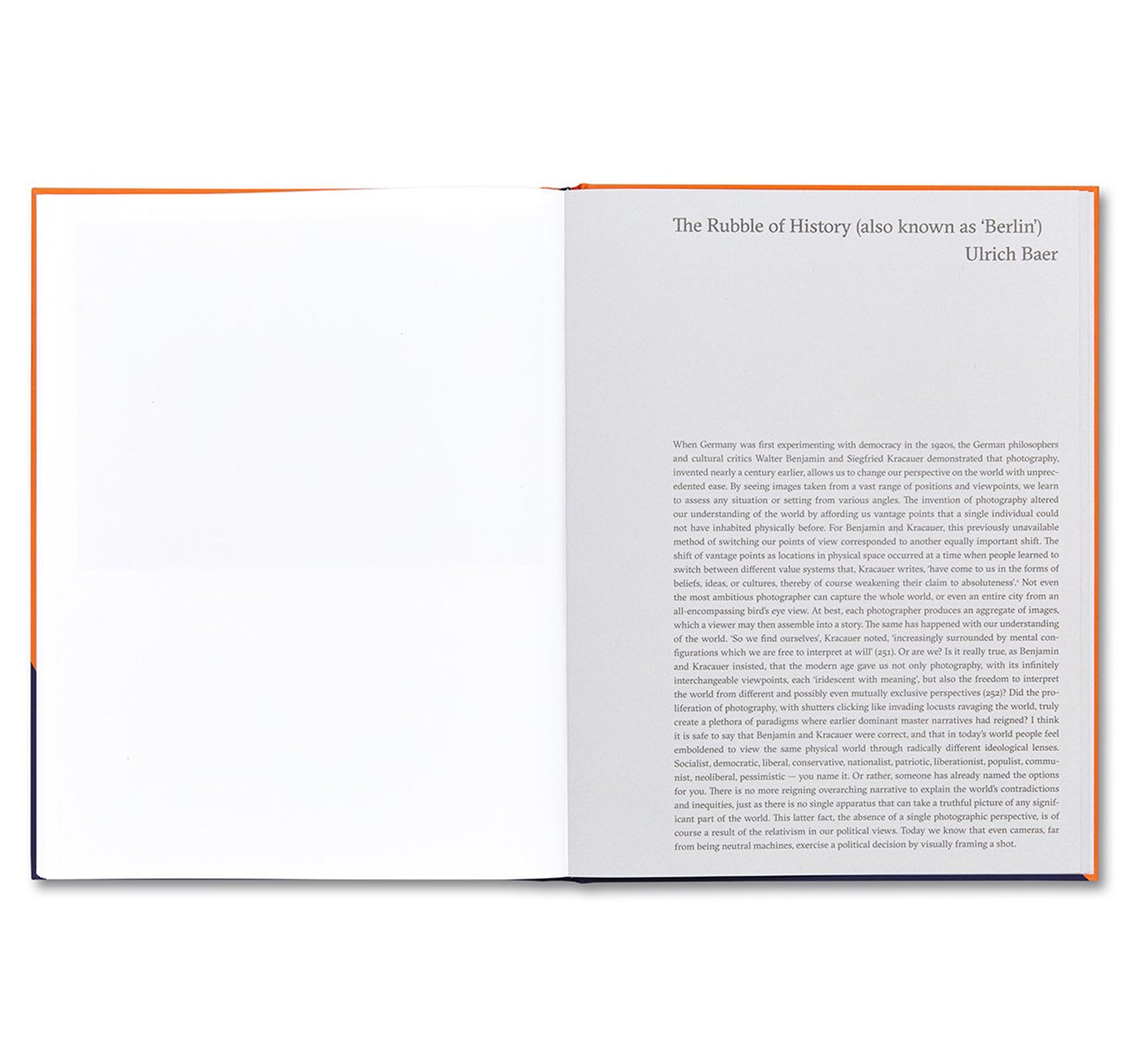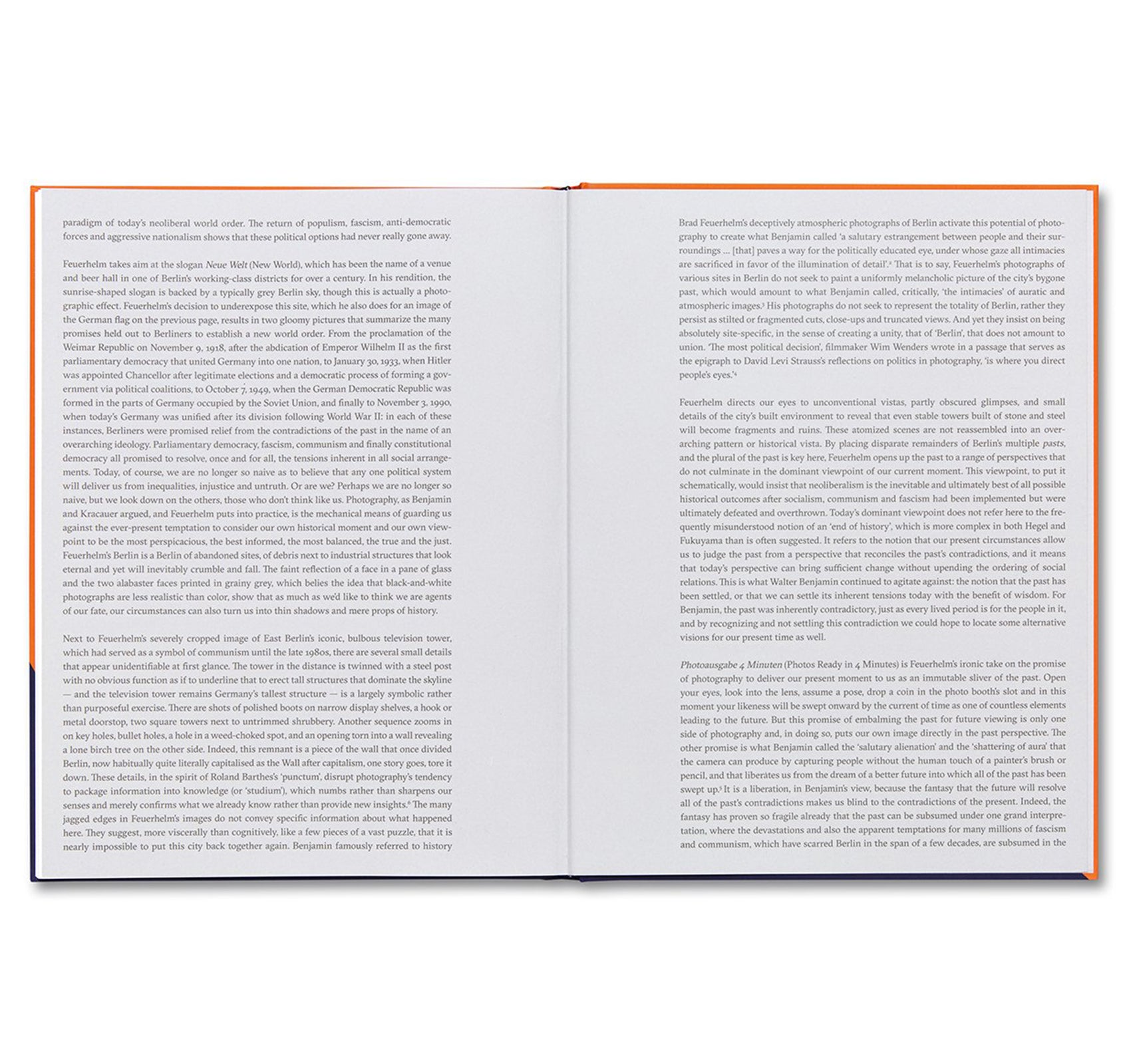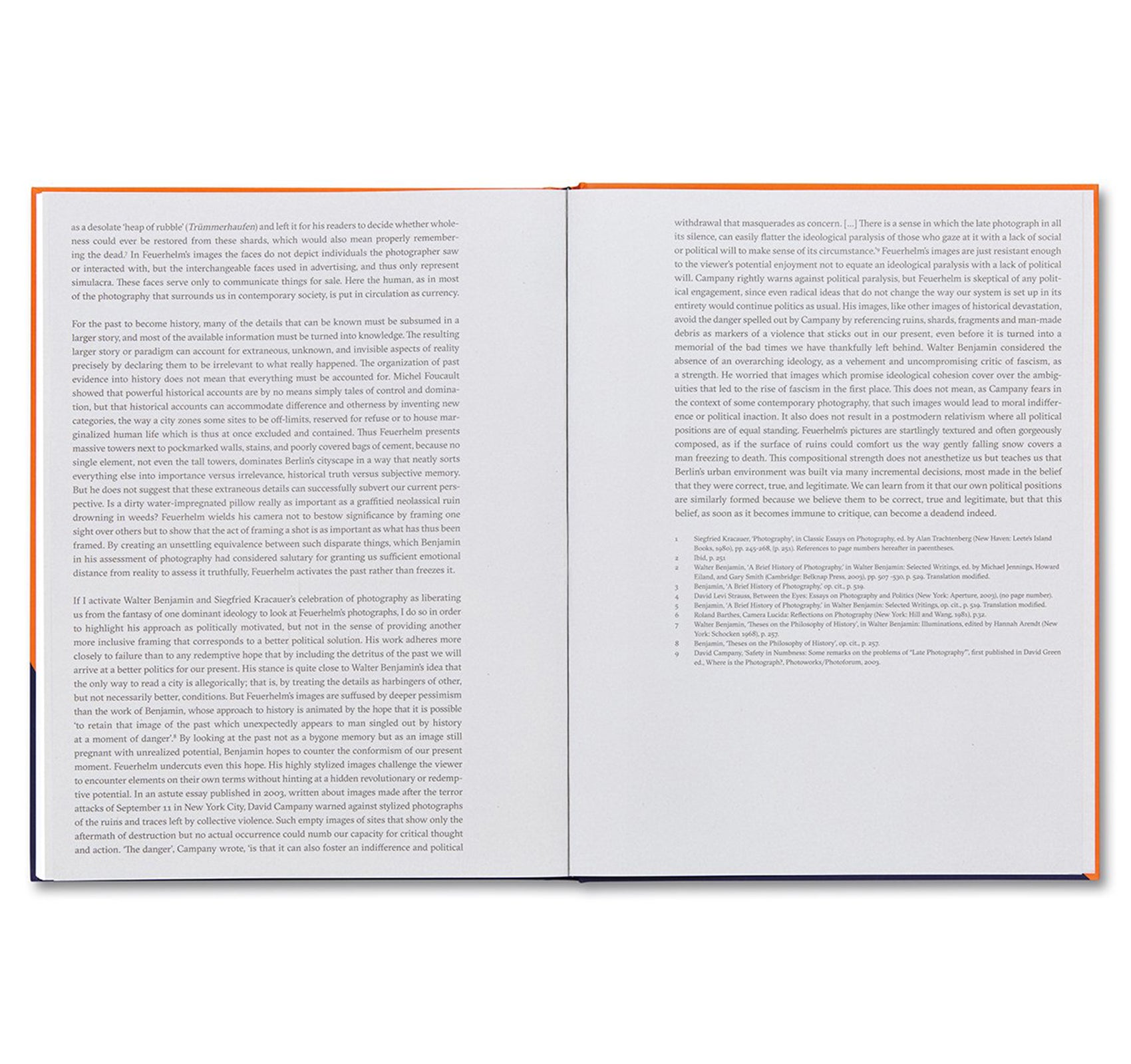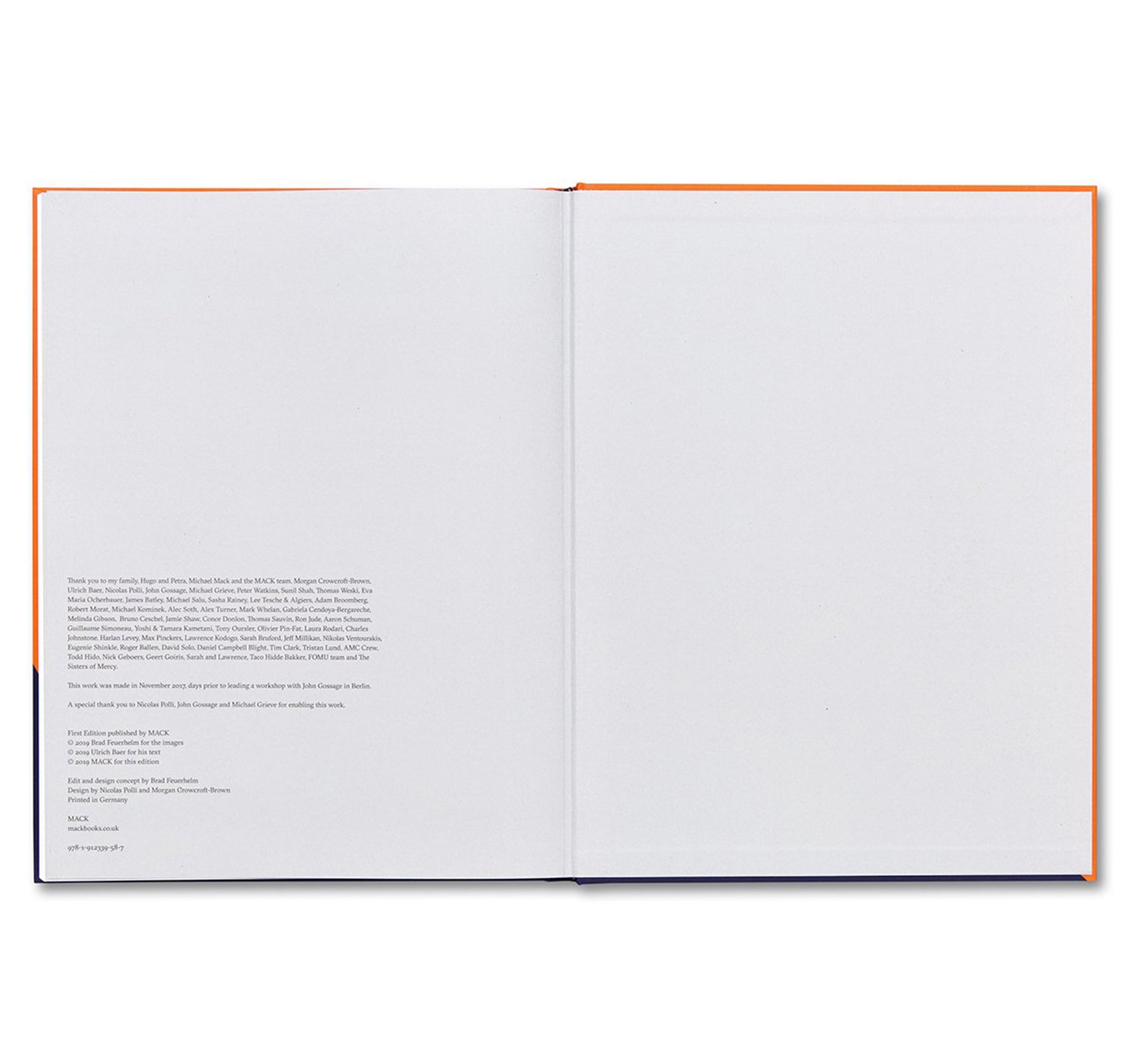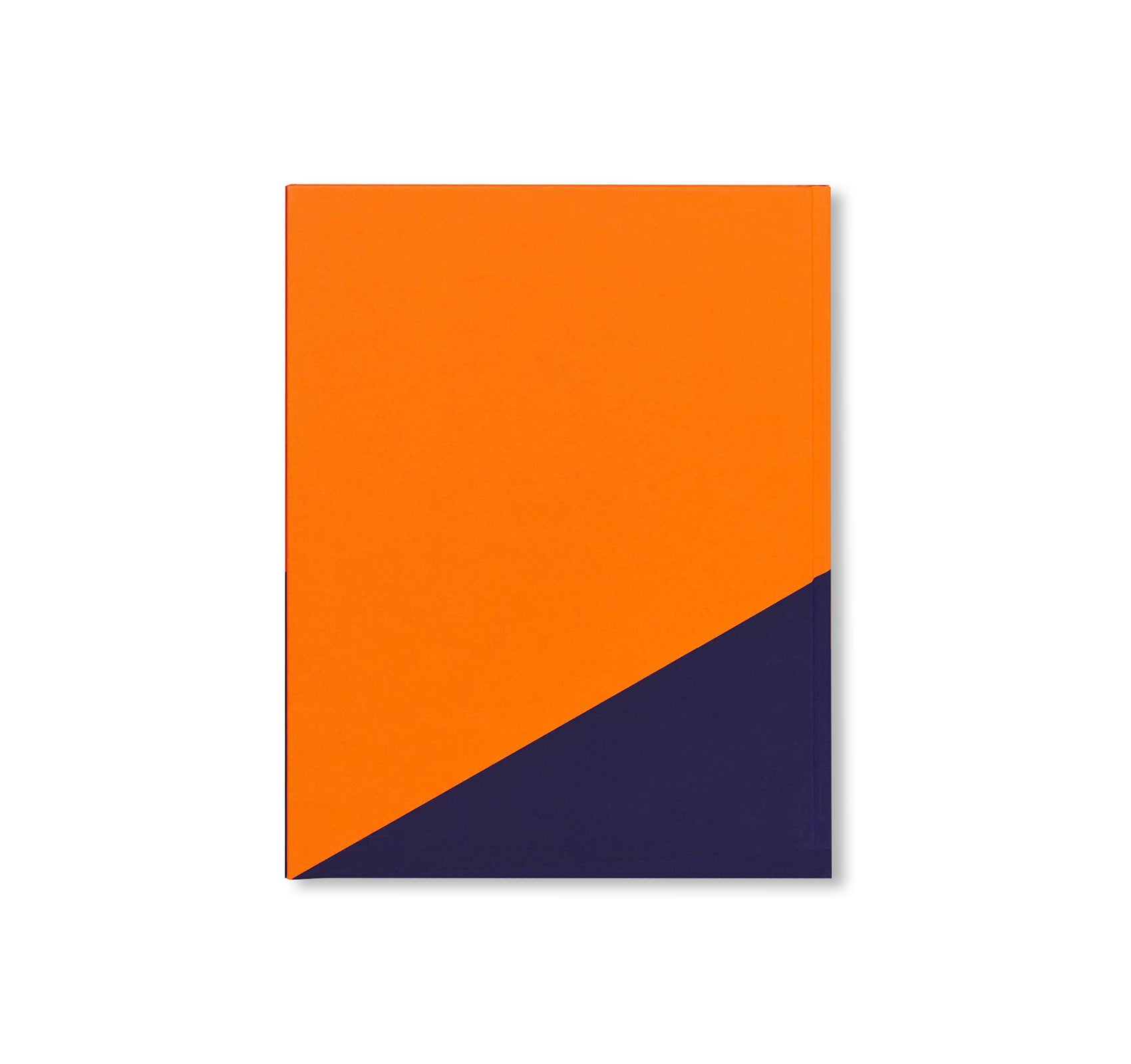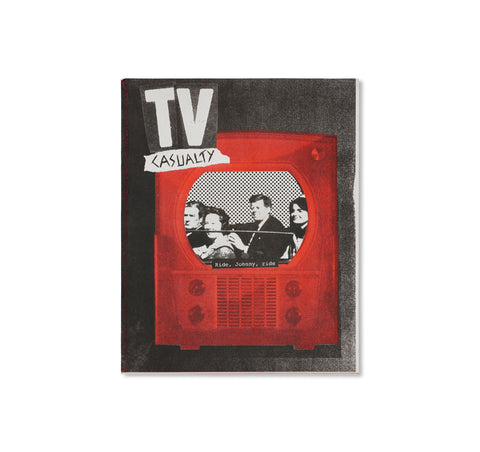DEIN KAMPF by Brad Feuerhelm
写真コレクターでありキュレーター、ディーラー、ライター、そして写真家としても活動するブラッド・フォイャヘルム(Brad Feuerhelm)による作品集。作品のタイトルとその堅苦しい表記を巧みに使い、景気変動と関連したイデオロギーへの不安に対する批評を示唆した。20世紀に幾度となくイデオロギーが衝突したベルリンが常に背景に写り込んでいる彼の写真には不安が内在している。可能性に満ちた苦境の存在を具現化しているこの街では、歴史的な物語と現代の政治やイデオロギーに対する懸念の間の緊張関係が、ランドスケープに点在する視覚的なモチーフの中に現れている。本作は、過去の断片や資本主義的な現代のシンボルに支えられている。銀行や保険会社の他、市民の肖像として出てくる街の人々は、頽廃を内に秘めているようであり、過去、現在、そして訪れることのない未来の亡霊のように見える。作者は、装置のエラーを利用して作品を制作する「グリッチ」と、既存の作品、イメージを自覚的に作品に取り入れる「アプロプリエ―ション(盗用、流用)」の手法を用いることによって、恐怖と混乱が支配する今の世の中の状況に対する疑念を表明する。また作中では、テクノロジーによって変わりゆく未来、宗教、移民問題、そして写真によるイメージの将来をどことなく連想させる要素が不気味に迫ってくる。本書で作者は、我々が写真集という形式によってイメージとイデオロギーを活性化しているという命題を提示している。
From its title to its formal arrangement of language, Brad Feuerhelm’s Dein Kampf suggests a commentary on our cyclical anxieties about ideology. Anxiety is implicit in his photographs and Berlin is their natural backdrop, being a city in which several ideologies collided in the twentieth century. The city exemplifies the quagmire of possibilities in which the tensions of historical narrative and contemporary political and ideological doubt are played out in visual motifs throughout the landscape. Fragments of the past and symbols of capitalist modernity underpin the work–banks, insurance companies and people as effigies of citizens appear as a cloaking miasma, the spectre of past, present and no future. The schema of the glitch and the appropriation methods in Feuerhelm’s work are subtle enquiries into the contemporary conditions of fear and confusion. Loose associations about changing futures under technology, religion, immigration and the future of the photographic image also loom large. Dein Kampf is Feuerhelm’s proposition about how we activate image and ideology in the book form.
